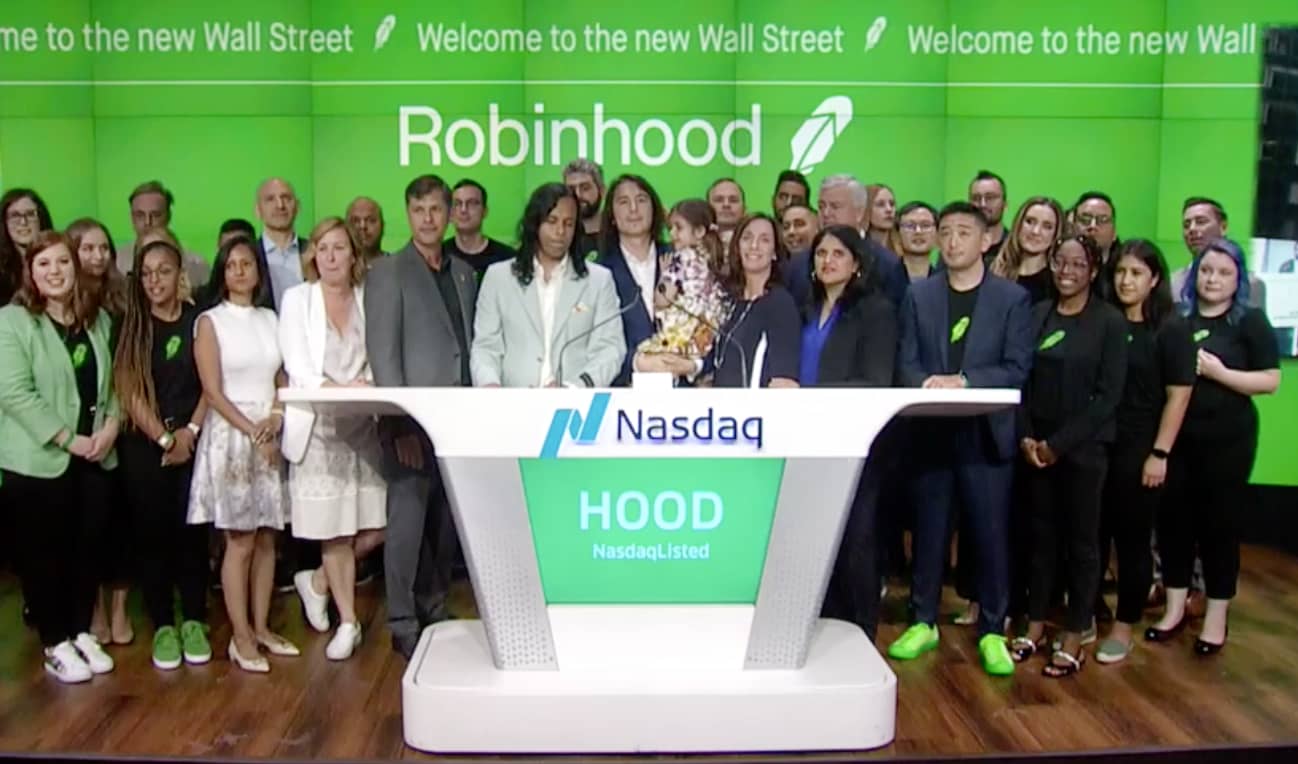
Vlad Tenev, co-founder and CEO of Robinhood rings the opening bell at the Nasdaq on July 29th, 2021.
Source: The Nasdaq
As some Robinhood clients head back to the office following the pandemic, the stock trading app — which has experienced a slowdown in volume this year — is now offering extra hours in the morning and evening for its investors.
Robinhood said Tuesday it is adding four extra hours to the trading day. In a push to eventually provide 24/7 equities trading, Robinhood said it will be available from 7 a.m. to 8 p.m. ET.
Until Tuesday, Robinhood offered trading 30 minutes before the open and 2 hours after the close.
The U.S. stock market opens at 9:30 a.m. ET and closes at 4:00 p.m. as part of its regular session. Extended trading is allowed as early as 4 a.m. and goes as late as 8 p.m. and some electronic brokers do offer that extended access.
“Our customers often tell us they’re working or preoccupied during regular market hours, limiting their ability to invest on their own schedule or evaluate and react to important market news,” Robinhood said in a blog post on Tuesday. “Our new extended trading hours for equities will give them more opportunities to manage their portfolio at a convenient time for them, whether that’s in the early morning or in the evening.”
Rival brokerages Charles Schwab, Interactive Brokers and Fidelity also offer extended trading from 7 a.m. to 8 p.m.
Robinhood did not need approval from the Securities and Exchange Commission to extend trading hours.
Robinhood’s stock has been crushed this year as business on the trading app slows and it looks for new ways to drive growth. Shares are off by about 28% in 2022, giving it a market value of $11.12 billion.
Robinhood ended 2021 with 22.7 million net cumulative funded accounts, with more than 10 million of the accounts being added in last year alone. However, the company gave a weak revenue forecast for the first quarter.
This article was originally published on CNBC

